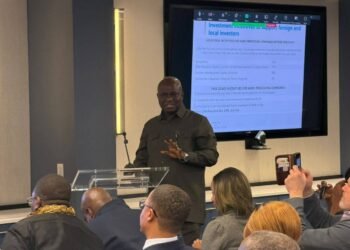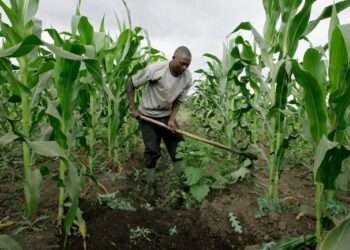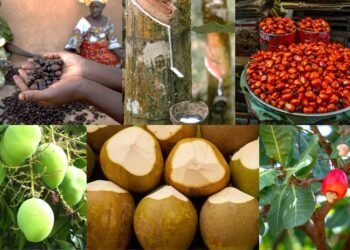Global cocoa prices have surged to multi-decade highs, presenting what could be a golden opportunity for Ghana, the world’s second-largest cocoa producer.
However, despite the favourable market environment, the country’s cocoa sector finds itself hamstrung by deep-seated operational inefficiencies and crippling debt. The World Bank’s latest Ghana Economic Update warns that the financial woes of the Ghana Cocoa Board (COCOBOD) threaten to undermine the sector’s long-term viability.
At the centre of the crisis is COCOBOD’s ballooning debt portfolio. According to the World Bank, the state agency owes significant amounts to its suppliers and contractors. These financial obligations have grown due to years of engaging in quasi-fiscal operations — activities outside COCOBOD’s core mandate — which have diverted resources away from sustaining cocoa production.
The report emphasises that such fiscal overstretch has heightened financial risks not just for the cocoa sector but for Ghana’s economy at large. Cocoa remains the country’s second-largest export earner after gold, contributing billions of dollars annually in foreign exchange and sustaining millions of rural livelihoods.
Production Declines Amid Rising Prices
While global prices have soared, Ghana’s cocoa production has been alarmingly weak. Analysts point to factors such as ageing farms, climate-induced crop diseases, and inadequate investment in productivity-boosting measures. The inability to increase output means Ghana is unable to fully capitalise on the current market boom.
This production shortfall is particularly concerning given the present window of opportunity. With cocoa prices at their highest levels in decades, any delay in addressing structural bottlenecks risks squandering potential gains.
The World Bank has urged immediate reforms to safeguard the sector’s future. Chief among its recommendations is that COCOBOD should return to its primary mandate — sustaining and enhancing cocoa production — while cutting back on non-core activities that strain its finances.
Stronger oversight and accountability are also critical. The report highlights the need for better governance in both the agricultural and energy sectors to reduce fiscal risks. For COCOBOD, this means tightening expenditure controls, improving operational efficiency, and ensuring that every cedi spent directly contributes to boosting production and farmer welfare.
Implications for the Ghanaian Economy
The stakes are high. Cocoa accounts for a significant share of Ghana’s export revenue, and any instability in the sector could have ripple effects across the economy. Reduced foreign exchange earnings would put additional pressure on the cedi, potentially worsening inflationary pressures and undermining economic stability.
Furthermore, millions of smallholder farmers depend on cocoa for their livelihoods. A financially weak COCOBOD risks delayed payments to farmers, lower producer prices, and reduced investment in essential support services like pest control and input distribution.
Industry experts warn that without urgent action, Ghana could lose its competitive edge in the global cocoa market. “The irony is stark,” one analyst observed. “We have some of the best cocoa in the world, and prices are booming, but our ability to supply is shrinking because of mismanagement and chronic underinvestment.”
Others argue that the government must move swiftly to restructure COCOBOD’s debts and secure sustainable financing. This could involve strategic partnerships with the private sector, diversifying sources of funding, and reducing dependence on syndicated loans that add to the debt burden.
The current high-price environment will not last forever. Market dynamics are volatile, and global supply and demand could shift rapidly. If Ghana fails to strengthen its cocoa sector now, it may face even greater challenges when prices normalise.
READ ALSO: President Mahama Engages GCF on Boosting Climate Finance for Ghana























